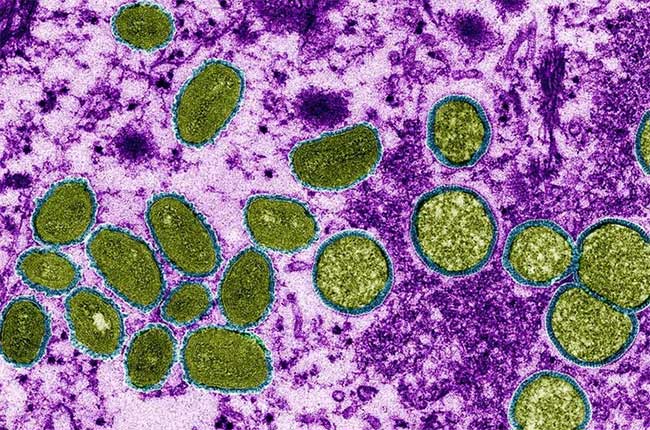According to Bloomberg, the World Health Organization (WHO) is considering changing the official name for monkeypox. The reason is their concern over the stigma and discrimination surrounding the virus, which has infected nearly 1,300 people in over 20 countries.
Urgent Need for a Name Change
On June 10, the journal Science reported that more than 30 international experts from WHO unanimously expressed their views that monkeypox is being “labeled,” discriminated against, and stigmatized. They called for an “urgent rename of the disease.”
A WHO spokesperson also stated that the current name is inappropriate according to WHO guidelines, which advise against using geographical regions and animal names.
This proposal has sparked a debate similar to when WHO requested that the name Corona be changed to Covid-19, after many people worldwide referred to it as the Chinese virus or Wuhan virus. Currently, the true animal origin of monkeypox remains unknown, even though it has been found in various mammals.

Monkeypox virus under a microscope. (Photo: Science).
The group of experts wrote: “In the context of the current global outbreak, continuing to use the old name and label for this virus (monkeypox in Africa) is not only inaccurate but also carries stigma and discrimination.”
The name hMPXV A.1 may not be concise, but the experts believe it will help reduce stigma and discrimination against the patient group and the African community where the disease is endemic.
They further noted that the virus strain spreading among people outside Africa may differ from the strain found in animals. The experts urged health organizations to swiftly decide and implement a new name for this disease.
Considering a More Appropriate Name
The spokesperson indicated that WHO is consulting with experts on orthopoxvirus—the virus family responsible for monkeypox—to establish a more suitable name. According to WHO’s general recommendations, the World Organization for Animal Health, and the Food and Agriculture Organization of the United Nations, some other disease names contradict these guidelines, such as swine flu.
A WHO representative stated that naming diseases should aim to minimize negative impacts and avoid offending any cultural, social, national, regional, occupational, or ethnic group.
Monkeypox has been endemic in West and Central Africa for decades, but cases have primarily been related to animal-to-human transmission rather than human-to-human transmission. In previous outbreaks outside African countries, such as in the U.S. in 2003, cases were linked to contact with infected animals or travel to outbreak regions. It remains unclear how monkeypox entered humans during the current outbreak, but the virus has spread through close, intimate contact, marking a change from previous outbreaks.

Experts emphasize that monkeypox poses a risk to any ethnicity or nation. (Photo: Freepik.)
Other expert groups have also warned about the stigma in media coverage of monkeypox. At the end of May, the Foreign Press Association of Africa requested that Western media stop using images of Black individuals to illustrate the disease status in stories about patients in the U.S. or the U.K. Weeks later, scientists pointed out that the lesions experienced by patients in this outbreak differ from those previously recorded in Africa.
“Like any other disease, it can occur in any area of the world and affect anyone, regardless of race or ethnicity. Therefore, we emphasize that no race or skin color is a discriminatory group for this disease,” the authors wrote.
The WHO expert group and many other organizations believe that international attention to this virus was minimal until it spread to countries outside Africa. Researchers emphasize that every monkeypox case needs urgent treatment and attention, just like any other disease.
Previously, WHO was criticized for referring to MERS as Middle East Respiratory Syndrome. Historical names like Spanish flu and Rift Valley fever have been seen as contributing to the stigma of the countries or regions where outbreaks occurred.
WHO’s guidelines recommend against using people’s names for diseases (e.g., Creutzfeldt-Jakob disease, Chagas disease), animal names (swine flu, equine encephalitis), names that imply cultural or occupational significance (Legionnaires’ disease), or terms that induce undue fear (death).
- These measures aim to avoid global confusion and prevent a wave of underlying racial discrimination stemming from the disease.
- Diseases that have resurfaced unusually during the Covid-19 pandemic
- Can monkeypox be prevented with smallpox vaccine?
- How are monkeypox and chickenpox different?


















































